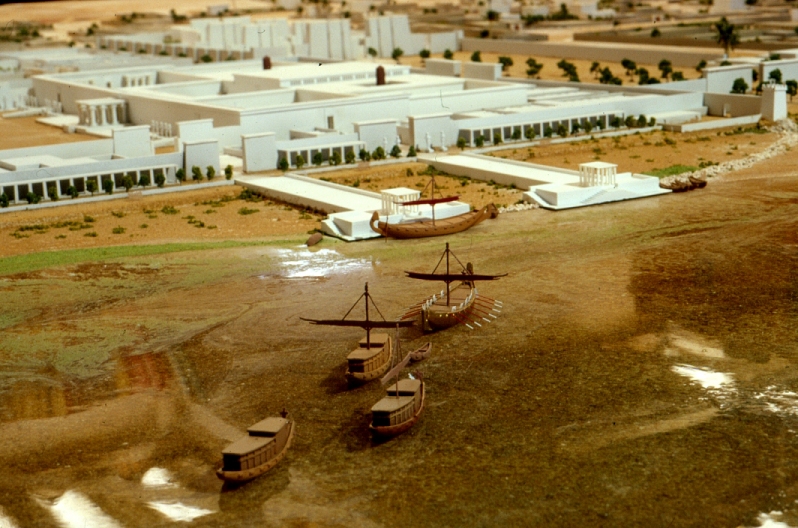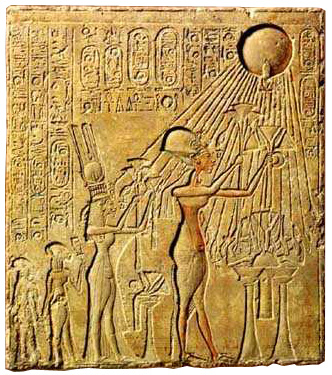 |
| Akhenaton and Nefertiti, side by side, holding hands, and looking straight ahead |
Holding
Each Other’s Hand for 3,500 Years
Ancient Egyptian life was all about the family. The unit
of mother, father and children was the solid basis of a strong society. Man
paintings and inscriptions on tomb walls show the loving relationship that existed
between husbands and wives as well as between parents and children.
Many paintings show affectionate couples embracing or
seated close together holding hands. Romantic love was a frequent subject in
poems, songs and other writings. All of these works are dated from the New
Kingdom. One such poem includes:
“Your
hand is in my hand,
my body trembles with joy,
my heart is exalted
because we walk together.”
All that
remains from a statue of Akhenaten and Nefertiti are these hands, clasped forever.
 |
Amarna, quartzite clasped hands from Akhenaten and Nefertiti group, c.1345-1335
BC 18th dynasty, at Neues Museum or New Museum on Museumsinsel or Museum Island
in Berlin/ Sandra Steiß; CC NC-BY-SA
|
It was
found in the ruins of Akhenaten’s custom-built city, Akhetaten (modern day
Amarna) and is generally considered to show Nefertiti (left) gently holding the
hand of her husband, Akhenaten (right).
 |
| Akhetaten on the Nile |
 |
| AMARNA |
 |
| Aten_disk |
Akhenaten
was driven by two burning passions: his adoration of the Aten, the sun-disc,
and his beautiful bride, Nefertiti.
 |
Decorated Balustrade Fragment from the Great Palace at Amarna
Dynasty 18, Reign of Akhenaten, 1353-1336 BC, crystalline limestone |
Along with
his dramatic religious reform, the king also introduced a new art form; more
dynamic and sensual than the traditional rigid style.
Source:
nilemagazine.com.au
digital-images.net/Gallery/Art/LACMA/Asia-MidEast/asia-mideast










